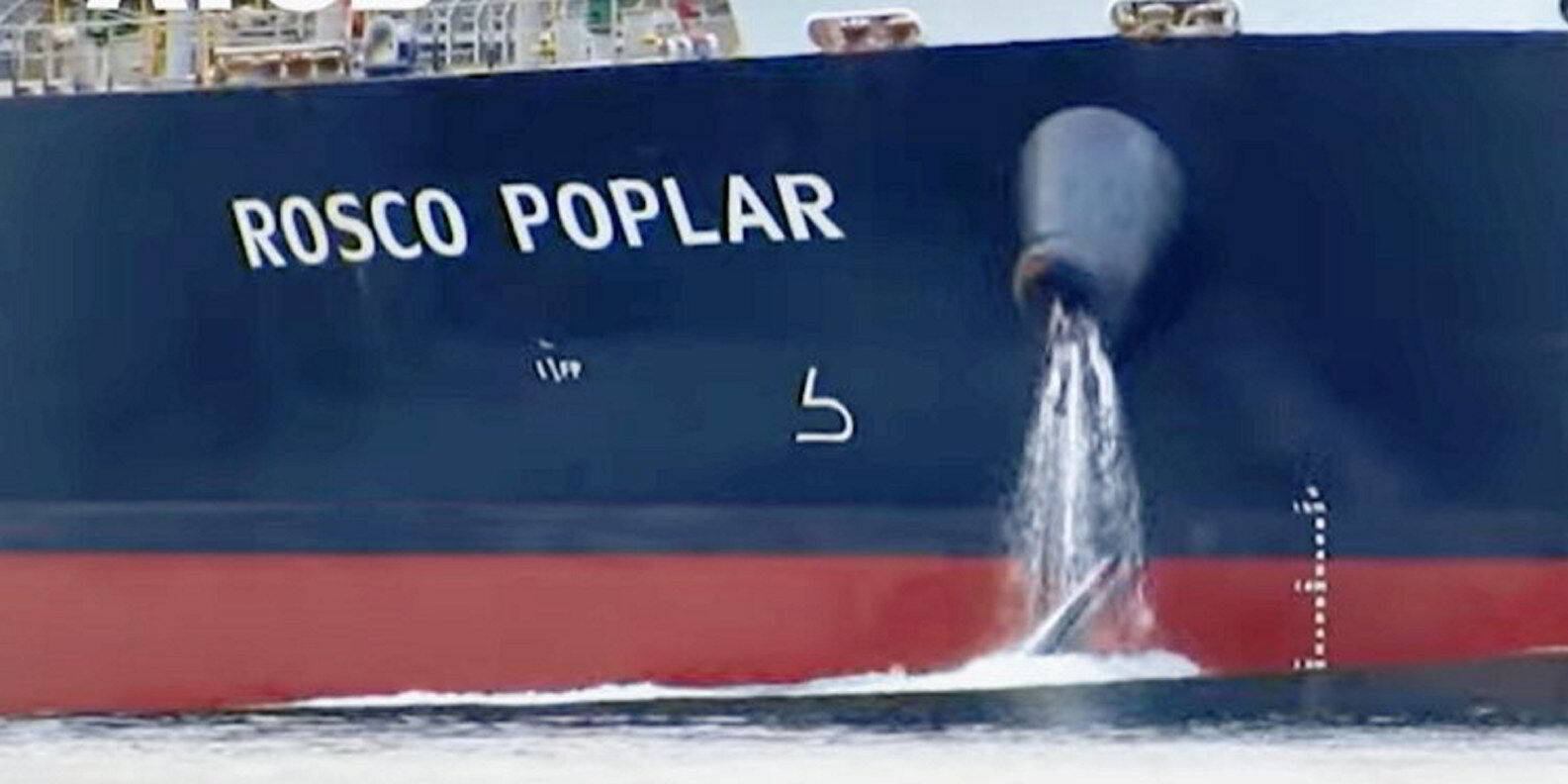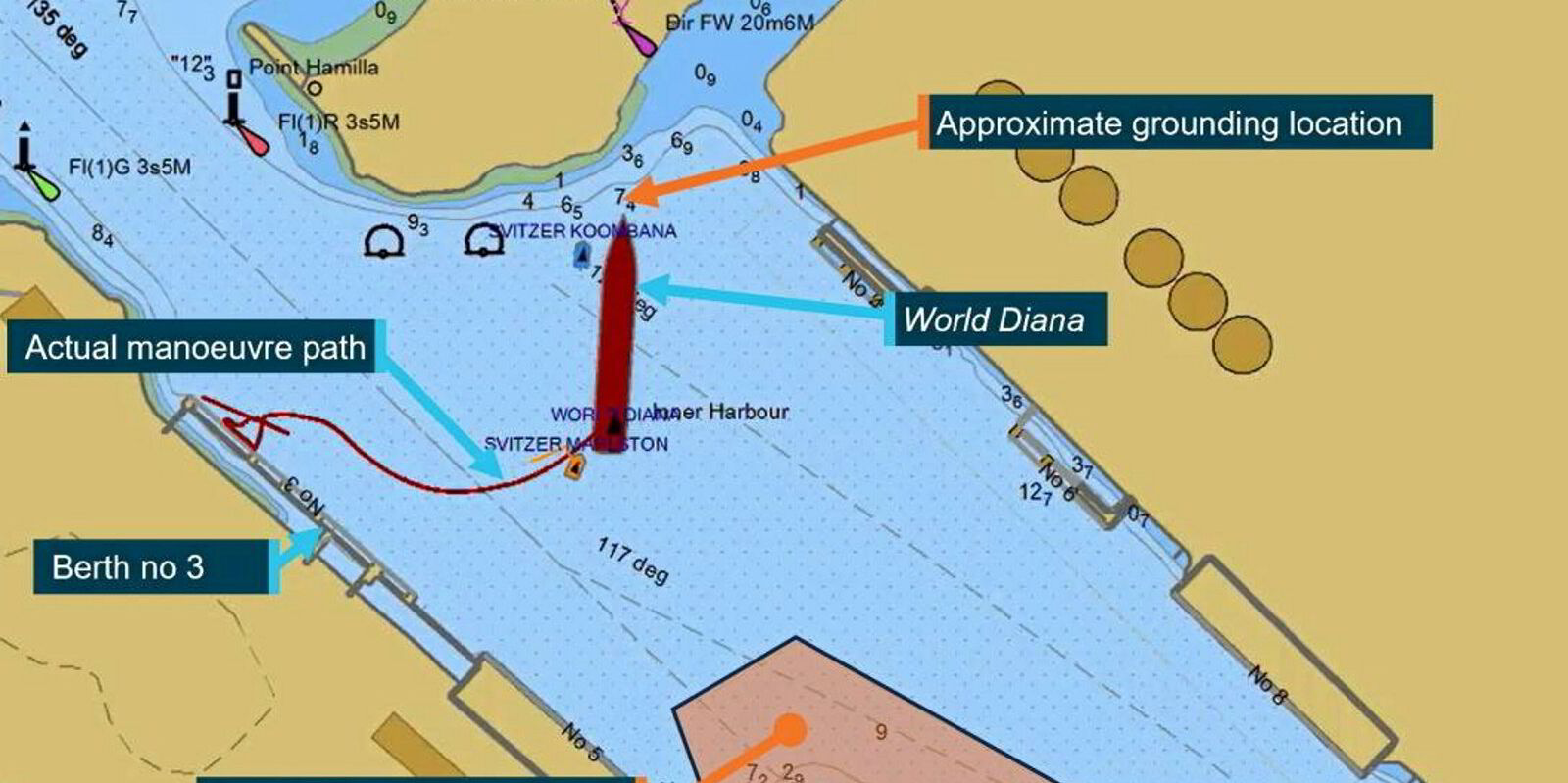A Chinese bulker came within 200 metres of grounding in Australia’s Great Barrier Reef when a GPS unit provided false data.
A probe by the Australian Transport Safety Bureau (ATSB) found that disaster was averted only when the pilot on the 82,300-dwt Rosco Poplar (built 2008) noticed a reef light showing red.
The 225-metre vessel, controlled by China’s Rewood Ocean Shipping Co (Rosco), was transiting Hydrographers Passage on 4 May 2022.
Unknown to the coastal pilot and crew, one of the ship’s three GPS units began issuing incorrect positional data during the early stages of the pilotage, probably due to an antenna malfunction, the ATSB said.
The ship’s position was then incorrectly displayed on navigational equipment, including the electronic chart display and information system, radars and AIS, the report found.
As the Rosco Poplar came within 200 metres (660 feet) of Bond Reef, where normal clearance is about 1.5 km, the pilot suddenly noticed a reef sector light indicating red.
This was followed by an alert from the ship’s electronic navigational equipment.
The pilot ordered a heading change and the ship’s course was altered away from the reef. The remaining pilotage was conducted without further incident.
The ATSB found that the pilot and bridge team relied solely on GPS positioning to monitor the ship’s progress.
The pilot had also failed to correctly configure the portable pilot unit to be independent of the bulker's position sensors.
‘Ineffective’ bridge management
In addition, the bureau determined that “ineffective pilotage and bridge resource management contributed to the occurrence”.
“An inadequate master-pilot information exchange did not establish individual roles and responsibilities for watchkeeping and communication, while the second mate was given tasks which distracted them from their duties for monitoring the passage plan, and maintaining a proper lookout,” ATSB chief commissioner Angus Mitchell said.
“This occurrence demonstrates the importance of the various concepts, techniques and attitudes that together comprise effective bridge resource management.”
Rosco has been contacted for comment.
The Australian Maritime Safety Authority has said a review of coastal pilotage under the current legislation is underway.
“Compulsory coastal pilotage remains an essential defence against serious shipping accidents in the Great Barrier Reef,” Mitchell said.
“It is therefore important that coastal pilots are up to standard — and any assessment system that assures those standards must produce consistent and accurate outcomes.”
The investigation also found that the vessel traffic services operator assessed an unusual grounding alert display associated with the Rosco Poplar’s GPS malfunction as erroneous.
“Consequently, the pilot and ship’s crew were not provided with timely advice of the indicated proximity to Bond Reef,” Mitchell concluded.





